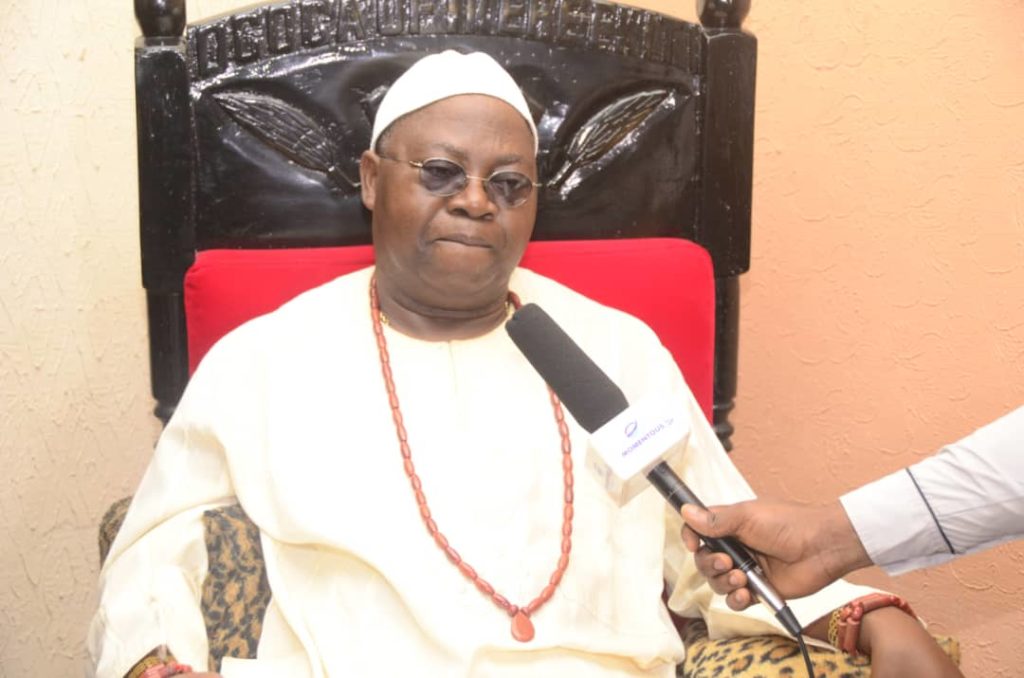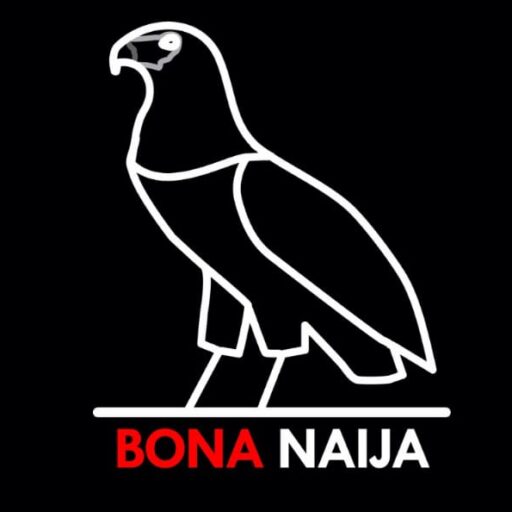

Feature
VOTE-BUYING IS LIKE SELLING YOUR BIRTHRIGHTS- KING OGOGA IKERE -EKITI
As the residents look forward to a better Ekiti from the incoming government of the victorious Dr. Fayemi, In this interview with Sesan Awobiye,the Ogoga of Ikere Ekiti,Oba Adejimi Alagbado tells about election just concluded in Ekiti State , speaks on some of the people’s expectations, vote-buying practices that allegedly characterized the election, Fulani herdsmen troubles, and promotion of Yoruba culture and tradition.
The Ekiti gubernatorial election
As a traditional ruler, I’m father to everybody. All political persons, politicians, are under the umbrella of the kingdom which I am the representative. There is no way one would not want his own son to win the election. However, in Ikere, we had four candidates from four different political parties, one for the PDP, one for mega-party, one for Labour Party, and the third one, I can’t really remember, whether APC or something like that at the end of it, APC, that is Dr. Fayemi won the election, well, what we do is we pray for peace, we pray for government that would listen and be sympathetic to our people, we pray for government that will bring development and we believe there is no politician that would not want to make a mark, so we are hoping that the government that will come in would also meet that expectation, so the election has come and it has gone. We are just appealing to our people to sink their differences and because God does not make mistake, we are hopeful.
The alleged ceding of Ekiti lands to Fulani herdsmen
Dr. Fayemi is not Fulani, he is an Ekiti son, and I can’t see how he would now cede Ekiti land to Fulani herdsmen, I find it very hard to believe, I think it is just rumour. He is a cultured person, he has been in Ekiti before as a governor. He knows the feelings and the aspirations of our people. Nevertheless, like I said before, Council of Traditional Rulers which stand as advisors to government in respect to tradition, culture and chieftaincies, we are very close to our people who are farmers, mostly. So, I believe the Council would also meet with the governors and advise on the decision that was made before, I think it would be tendered before him. I do believe every government would listen to his people and listen to advice, so I have no fear. I must tell you also that we have people who are indigenous cattle rearers in Ekiti, that have been living with us as against this itinerant herdsmen, our people now referred to as Bororos We’ ve also realized that in the past few months, the reports of kidnapping, raping and destruction of farm steads in Ekiti, you recall the incidents of Iwaraja, Efon-Alaye, up to Ijero axis, they have also come to Ikere my own kingdom, and we have reported that to the government, therefore, I don’t think any sane person would want destruction or ceding our lands to these people. You know, Ekiti, our occupation, primarily is farming, where they continue to continue these farms, means they are inviting famine. Therefore, we can’t take that. Like I said the Council of Obas in Ekiti have taken decisions on that. If not for the election, we would have met the governor and tender our proposal in respect of this people. Ekiti, we don’t have lands, it is a thick-forested area. It is not where you have grass, so if cattle should come there, the only thing they would destroy, is the farm product or the plantations like we have witnessed in the past few months. So I do not believe that any government would want to do that to its own people. We believe the incoming government would want to listen to the voice of reason and advice of these elders who feel the pulse of our people. So I am hoping that would not happen in Ekiti.
Alleged vote-buying by politicians and voting habits of Nigerians
The problem of Nigeria is the common man. In Ekiti or Yoruba land, even if you are not rich, you always think of your own integrity. Where people will go and sell their birthrights, it is very unlike us. So when you talk of vote-buying, is it out of ignorance that people would not know that they want to sell their own birthrights or their conscience. Nigerian has sunk so deep that we have lost our moral values such that because of poverty, because of hunger, now a lot of things happen. Now, we would have to appeal to these politicians, because for me, I believe it is only God that put one in a position of authority.
So If you want to buy people’s votes, I leave that between you and your God. So, as a traditional ruler, we can only talk to our people, that they should think, have the fear of God, search their conscience, what do you want, based on what the candidates put before you. What are your preferences. We would continue to talk to our people, yes it is a terrible thing, that I think, Nigerians generally, all together, we must rise against. I believe a lot of these problem are on the table on the security men.
We have security men who would just fold their arms, watching as crimes are being committed-they do nothing. So what is the essence of the security men.So,it is a collective responsibilities, you can’t blame the politicians that are striving to be in a position one way or the other, by crooked means or whatever, what of the people, what of the security people, there are laws, when these things happen, when people go against a lot of impunity, people do things as they like and they just get away with it. So it is not just about the election. So much has been happening, that really show the decadence in our society. So generally, Nigerians will have to decide, they say the people get the kind of leadership, they deserve.
If it is selling of our votes that we deserve, when that person gets there, whatever falls back to us, we have to bear it. By and large I think people will get to know how to use their senses. You collect N1000 today, for next four years, you will be spending that N1,000, money that is supposed to be used for your children to have scholarship for hospital to grow, you will be spending that. I think, by and large, they say experience is the best teacher, so, let see if our people can reason because when somebody is buying votes, he is spending money, when he gets there, he is going to recoup that money and it is your entitlement that you are using to go and buy garri now. I hope our people can reason and in our own position, we would continue to talk to our people, advise them that it is a sin, when you lose your culture and your tradition, you lose your identity.
Promotion of Yoruba culture and tradition
We are different from the Caucasians, because of our uniqueness and our uniqueness comes from our culture and tradition. Every tribe, every race that God has created, he gave them their culture. It is unfortunate that for one reason or the other, we’ve lost our ways, we have taken the culture of other people, but there is a re-awakening as you can see. The Ooni, Arole Oodua, is traveling all over the world, to propagate a revival, a renaissance of our culture, the Yoruba culture in particular. We have the best culture all over the world, you go to Brazil. You go to the Caribbeans, you see people of Yoruba descents, practicing these things. All the governors, ministers, the commissioners, they are Yoruba. We should appreciate our culture. I can’t go about wearing suits claiming to be a White man,I am not. God did not make mistake in creating me and putting me in Yoruba land. These things that came out from our ways of life, which was given to us by God , we should not allow it to perish. So for me, ever since I came on the throne, I, within my own limit , I have been trying revive our culture, our tradition which is encapsulated in Isese.
Before Christianity came and Islam, we had our ways of worship God. There is only one God, and if you go through Yoruba mythology, even the equivalent of Jesus Christ, that is, Orisa Nla, you will see all these things. So we have our way, we should not bury it. Every religion has bad people, good people. So,our own culture, which is Isese should be promoted. I am one of the advocates of this thing, because I don’t want our culture to die. We are unique, we must continue to propagate that to see that it does not die. A lot of countries in the world are speaking English. Today, in Yorubaland, some parents forbid their children from speaking Yoruba, it is arrant nonsense, God did not make mistake for creating you a Yoruba man, so for me, I will continue to support any effort to revive our culture. We are different, we are unique, we are Yoruba, created by God almighty, the Olodumare, so, in my own little way, in Ikere, we have been doing that through the Odun Oba festival, and I believe so many obas in Ekiti are doing that. As you know, in most Yoruba town, the new yam, the harvesting of the new yam, is the beginning of a new season and that is what we have been celebrating. Under our Odun Oba, we have so many other festival like Iduge, the Ogunoye, Ogun proper, so many.
We are promoting it in Ikere and we hope by the grace of God next year, we are going to invite you for our Odun Oba, so that you can see parts of our culture and in doing this, let me also mention that we have what we call the Hall of Fame, it is a mini museum at our palace, where we are gathering artifacts, that represents our culture, so we are doing much as we can to make sure our culture is sustained. Every university in Yoruba land, admission in such university, a Pass in Yoruba Language must be a condition for any child that want to enter any university in Yoruba land, we are not English.
The Japanese, they study, and do science through their own language and you see the advancement, the progress in technology, imagine, if our Physics, Chemistry are taught in Yoruba, which is our own tongue, that God has created us with. Imaging how easy it would be for our children to take these things. So, for me it is not just a course, for any child to enter and university in Yoruba land he or she must have at least a pass in Yoruba Language.So it is something that we need to sustain. Today, I don’t know how many people are studying Yoruba Language as a course in the university. Those are the things that we need to sit down and look at. The population of the English people is less than that of Yoruba. If they can propagate and spread their language all over the world and by last count , I think Yoruba people all over the world were about 600 million.
So we have a platform which we can build, so I would support any policy that can make it compulsory for would-be candidates for admission to pass Yoruba Language.
Feature
Ex-Oyo Governor Ladoja Installed as 44th Olubadan of Ibadan
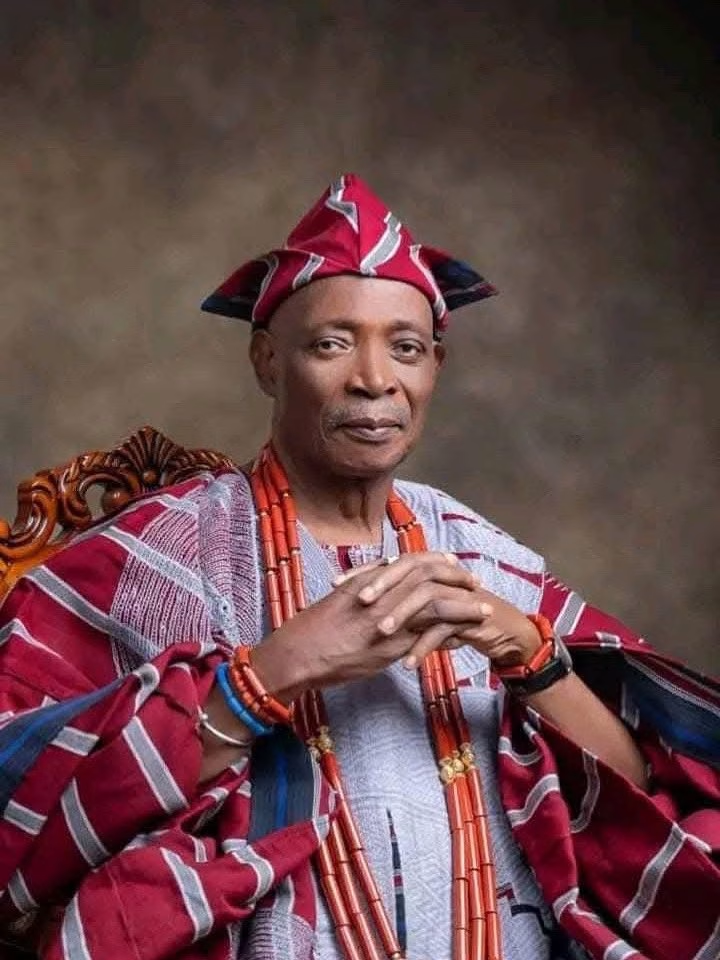
The odyssey of Senator Rashidi Adewolu Ladoja to the ancestral throne of Ibadan is not only historic but profoundly political, laced with trials and triumphs.
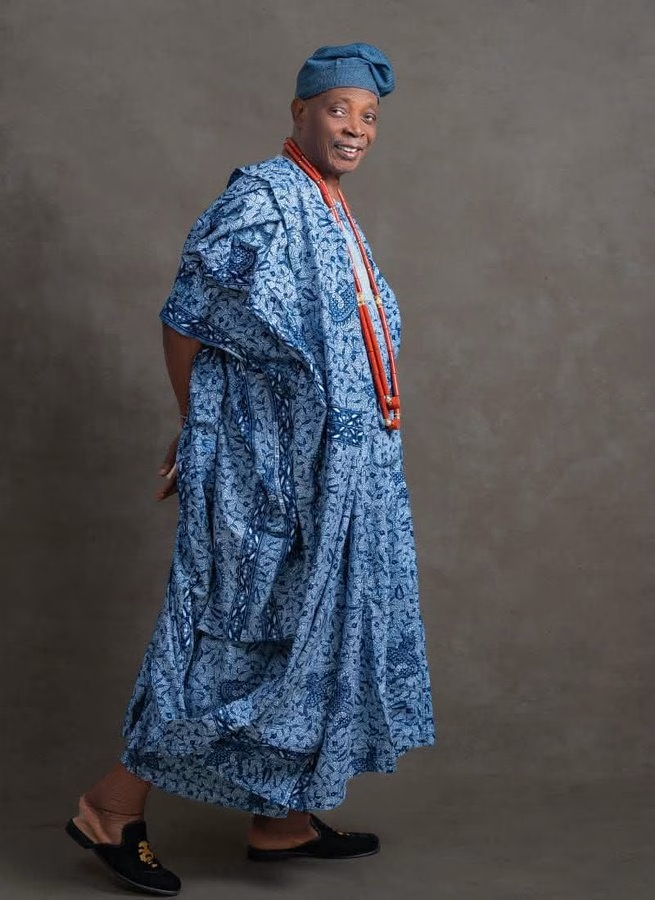
History often unfolds slowly, like a scroll revealing one line at a time. In Ibadan, a city steeped in tradition and resilience, history has once again taken a defining turn.
Oba Rashidi Adewolu Ladoja, former governor of Oyo State, businessman, politician, and activist, is now preparing to ascend the exalted throne as the 44th Olubadan of Ibadanland.
His decades-long journey, filled with trials, victories, and service, tells a compelling story of destiny, courage, and legacy. From political powerhouses to royal lineage, from boardrooms to the battlefields of democracy, Ladoja’s life blends tradition with transformation. His ascension is not only personal fulfilment but also a cultural and historical moment for Ibadanland.
Indeed, his coronation stands as a milestone, a testament to resilience, faith, and destiny fulfilled. On September 26, 2025, Oba Ladoja will be crowned the 44th Olubadan of Ibadanland, closing a circle that began 34 years ago when he became Mogaji of his family compound in Isale-Osi. But this is no ordinary coronation; it is the culmination of a saga defined by ambition, resistance, exile, betrayal, resilience, and ultimately, triumph.
Road to Royalty: From Mogaji to Monarch
It began in 1991 when Rashidi Ladoja became Mogaji (family head) of the Arusa compound in Isale Osi, a deeply rooted quarter in Ibadan South-West Local Government Area. That symbolic beginning marked the first step on Ibadan’s rigorous 36-step chieftaincy ladder, reserved for those destined to wear the revered crown.
The Ibadan succession system is unique among Yoruba kingdoms. Unlike other traditional stools where royal families are narrowed to specific lineages, the Olubadan system is remarkably open and transparent. Two lines of succession, the civil (Otun) and the military (Balogun), run concurrently, and candidates rise step by step until the next in line becomes Olubadan. It is an orderly system that rewards longevity, patience, and service, making the throne one of the most respected in Yorubaland.
On October 1, 1993, Ladoja was installed as Jagun Balogun Olubadan, formally entering the military line of succession. Over the next 31 years, he advanced steadily, surviving political turbulence, personal setbacks, and traditional disputes. Few endure the politically charged and physically demanding journey to the top, but Senator Ladoja did — with grit, patience, and determination.
“I never imagined destiny would call me to the throne at this time. It’s been one of patience, perseverance, and grace,” Oba Ladoja told a gathering at his Bodija residence after his official nomination.
Political Elite Meets Royal Heritage
In a city of warriors and statesmen, Oba Ladoja is the first former governor and senator to become Olubadan.
Trained as a chemical engineer in Belgium, he made his mark in oil, shipping, banking, agriculture, and transport before rising as a political force.
During the short-lived Third Republic, he was elected senator on the platform of the defunct Social Democratic Party (SDP). In 2003, he defeated incumbent Lam Adesina to become Governor of Oyo State on the platform of the Peoples Democratic Party (PDP).
Two years later, he was impeached in what many described as a conspiracy driven by then-President Olusegun Obasanjo and political strongman, Lamidi Adedibu. His reinstatement by the Supreme Court after 11 months in exile was more than a legal victory — it was a political resurrection. It cemented his reputation as “the indomitable warrior”, a man political opponents could not erase or ignore.
That resilience, combined with patient navigation of Ibadan’s chieftaincy system, has now borne fruit.
“It has been a bumpy journey filled with trials, but only made possible by the grace of God,” he told jubilant supporters.
Defiance and Reconciliation
Ladoja’s political career was often defined by principles that put him at odds with powerful figures.
In 2018, when then-Governor Abiola Ajimobi crowned Ibadan High Chiefs as kings, Ladoja stood alone in defiance. He rejected what he called a “carton-paper-made” beaded crown, declaring that the only crown worthy of him was the Olubadan’s. His refusal sparked years of political and legal confrontation.
“Why should I wear a crown not recognised by tradition?” he asked. “The throne is not for the desperate.”
Yet, in August 2024, in a radio interview, he softened his stance, saying unity was more important than pride: “The voice of the people is the voice of God. I am ready to accept the beaded crown if it will bring peace and allow me to serve the people of Ibadan.”
That statement shifted the atmosphere. His colleagues in the Olubadan-in-Council rallied behind him, and he was soon unanimously nominated and approved by Governor Seyi Makinde as the 44th Olubadan.
Unlike his clashes with Ajimobi, Ladoja’s relationship with Governor Makinde has been cordial and strategic. Makinde’s prompt approval of his nomination reflected a convergence of political and traditional power, a necessity in Oyo State where the Olubadan stool carries both cultural influence and political weight.
The Crown and the City
Ibadan is no ordinary city. It is the largest traditional Yoruba urban centre and the historic political capital of the old Western Region. The Olubadan, though largely symbolic, wields influence over millions.
For Oba Ladoja, this reign is not ceremonial. It is an opportunity to redefine the stool, blending cultural authority with political wisdom.
“I pray that my reign shall bring peace, prosperity, and progress to Ibadanland,” he said, calling for unity.
Expectations are high. From Oke Aremo to Abuja, all eyes are on him to redefine the modern monarch’s role not just custodian of rituals, but guardian of peace, diplomacy, and security. He has already urged coordinated efforts to secure Ibadan and Yorubaland amid rising insecurity.
The coronation of Oba Ladoja is more than a local event; it is a national stage. Expected guests include President Bola Tinubu, former Vice President Atiku Abubakar, Senator Rabiu Kwankwaso, former governors, business moguls, activists, and traditional rulers across Yorubaland and beyond.
Their presence underlines the symbolic place of Ibadan in Yoruba and Nigerian politics.
Activism, Sacrifice, and Legacy
Ladoja’s story is not just about royalty; it is about activism and identity. As a NADECO stalwart, he stood against military rule in the 1990s, supporting the pro-democracy struggle after the annulment of the June 12 election.
Chief Adeniyi Akintola (SAN) recalls: “We used his ships for NADECO’s activities after the Senate was dissolved. His businesses were seriously affected — he had a shipping line and the largest palm plantation in West Africa then.”
As governor, he challenged a sitting president. As High Chief, he resisted compromising tradition. As a businessman, he sacrificed fortune for democracy. Now, as Olubadan, he embodies the fusion of political power and cultural authority.
To former Nigerian Ambassador, Dr. Yemi Farounbi, “Ibadan is the intellectual capital of Nigeria. It provided security for the Yoruba in times of war. Peace must return, and the Olubadan must lead it.”
Professor Tunde Adeniran, a former minister, added: “He comes with experience and expansive networks. Expectations are high. We must rally around him.”
For younger Ibadan residents, his ascension represents continuity and hope. “We grew up hearing about his struggles as governor and his fight for justice,” said Akeem Alabi, a postgraduate student at the University of Ibadan. “Now he is our king. We expect him to stand for the people, just as he did in politics.”
The Crown After the Storm
For many, the crowning of Oba Rashidi Ladoja is poetic justice, a fitting epilogue to a life of battles in politics, business, and tradition.
From Mogaji in 1991 to Olubadan in 2025, from impeachment to reinstatement, from defiance to reconciliation, he now wears the crown not as a reward but as a responsibility.
The royal father is no longer just the “cat with nine lives”; he is the king whose destiny has come full circle.
Governor Seyi Makinde has expressed readiness to work seamlessly with Oba Ladoja towards the development of Ibadan city, describing the new monarch as an exemplary leader whose wealth of experience in politics, business, and community service will enrich the Olubadan stool.
Makinde recalled that his own political journey could not be written without Ladoja’s role, stressing that: “Baba remains a father figure whose guidance has shaped many of us. I hold him in high esteem, and I believe Ibadan and Oyo State will benefit from his reign as Olubadan.”
As Ibadan embraces this new chapter, the coronation of Oba Rashidi Adewolu Ladoja stands as both history and prophecy fulfilled a story of destiny, resilience, and triumph, written across the canvas of politics, tradition, and legacy.
CULLED FROM THE GUARDIAN
Feature
𝗜𝗻𝘁𝗹. 𝗗𝗮𝘆 𝗼𝗳 𝗣𝗲𝗮𝗰𝗲: 𝗛𝗼𝗻. 𝗢𝘁𝘂𝗼’𝘀 “𝗡𝗼 𝗗𝗶𝘀𝗰𝗿𝗶𝗺𝗶𝗻𝗮𝘁𝗶𝗼𝗻 𝗣𝗼𝗹𝗶𝗰𝘆” 𝗮 𝗣𝗮𝘁𝗵𝘄𝗮𝘆 𝘁𝗼 𝗣𝗲𝗮𝗰𝗲𝗳𝘂𝗹 𝗔𝗻𝗱𝗼𝗻𝗶
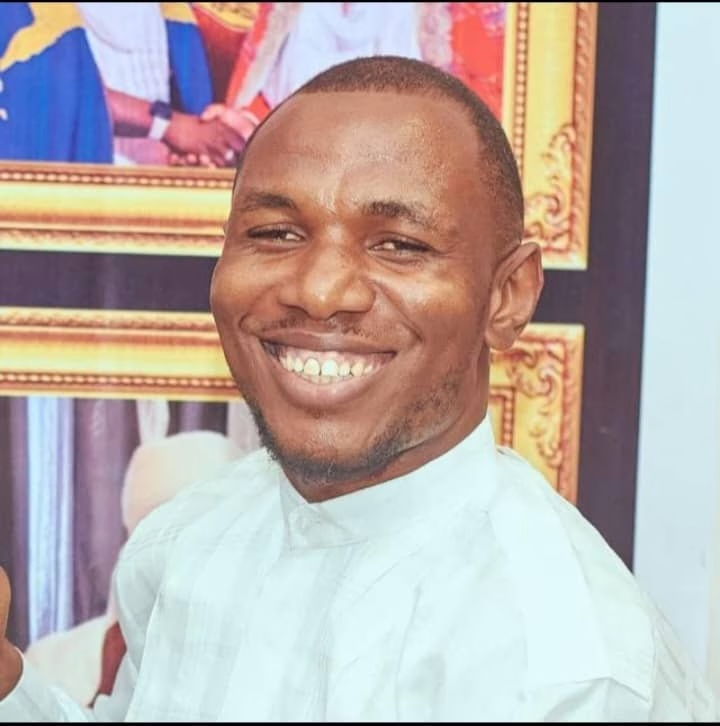
By Ima-owaji G. Shedrack
As the world commemorates the International Day of Peace, attention has once again shifted to the bold and inclusive policies of the Chairman of Andoni Local Government Area, Hon. Promise Lucky Otuo, whose leadership style has been described as a model for peacebuilding and sustainable development.
Since assuming office, Hon. Otuo has consistently emphasized that his government is a “no discrimination government,” a philosophy set to guide his policies and programs across the council.
In a remarkable demonstration of this principle, the Chairman extended empowerment opportunities not only to indigenes but also to non-indigenes residing and trading in Andoni. This inclusive approach, observers say, has deepened trust, fostered unity, and reduced the tensions that often arise from feelings of neglect or inequality.
Mr. Ima-owaji G. Shedrack, a stakeholder in the Renewed Hope family, applauded the initiative, noting that Hon. Otuo has shown that peace is not just about preventing conflict but also a conscious steps in building an environment where fairness and inclusiveness are at the center of governance.
“As Andoni joins the world to mark the International Day of Peace, Hon. Lucky Otuo’s leadership style that is anchored on ‘no discrimination’ is built to offer a clear roadmap, where peace is not only preached but practiced through deliberate policies of fairness and equal opportunity.”
Follow BONA NAIJA for more
Feature
Eid-ul-Mawlid: Uphold Hon. Lucky Otuo in your prayers, Ima-owaji Shedrack Urges non indigenes in ANOLGA

A stakeholder in Andoni Local Government Area of Rivers State, Ima-owaji Shedrack, has called on Muslim faithful in the area to remember the Chairman of Andoni LGA, Hon. Lucky Promise Otuo, in their prayers as they celebrate Eid-ul-Mawlid, the commemoration of the birth of Prophet Muhammad (SAW).
Speaking on Friday during the nationwide celebration, Ima-owaji stressed the importance of continuous prayers for leaders at all levels, describing Hon. Lucky Otuo’s administration as one that transcends sentiments, tribal lines, and religious differences.
“The government of Hon. Lucky Otuo is one beyond discrimination. Both indigenes and non-indigenes are carried along. This is why I urge our Muslim brothers and sisters to use this sacred celebration to pray for him and for the peace, progress, and prosperity of Andoni LGA,” Ima-owaji said.
He further noted that the Eid-ul-Mawlid celebration provides Muslims with another opportunity to renew their commitment to unity and inclusiveness, while also offering prayers for leaders who are steering the affairs of the people with sincerity.
Ima-owaji urged residents of Andoni, regardless of religion or origin, to embrace peace and support the development agenda of Hon. Otuo’s administration, which he said is focused on progress and inclusivity.
Follow BONA NAIJA for more
Feature
What to Know About CBN’s New Geo-Tagging Requirement for POS Terminals
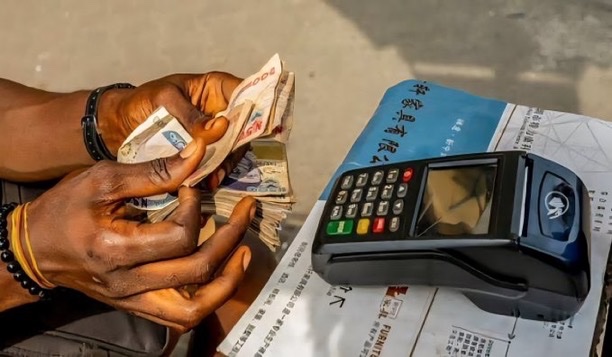
The Central Bank of Nigeria (CBN) has issued a new directive requiring all Point of Sale (POS) terminals to be geo-tagged within the next 60 days, a move designed to curb fraud, enhance oversight, and modernize Nigeria’s digital payment ecosystem.
According to a circular released on August 26, 2025, any terminal not geo-tagged will be deactivated from October 20, 2025.
“This initiative is designed to ensure that all PoS terminals are traceable and that transactions are secure. Terminals operating outside their registered location will be flagged, and non-compliant devices will be deactivated,” the CBN stated.
Here’s a breakdown of what the policy means for operators, agents, merchants, and customers.
What Geo-Tagging Means
Geo-tagging is the process of embedding location data, such as latitude and longitude, into a digital device.
For POS terminals, this means linking each machine to its exact physical address using GPS technology, creating a traceable digital footprint that makes every device verifiable and harder to misuse.
The CBN’s Key Requirements
- Geolocation Features
All POS devices must have GPS and dual-frequency receivers for accurate location tracking. - Real-Time Location Transmission
Terminals must capture and transmit their exact location at the start of every transaction. - Geofencing
Each POS terminal will be restricted to a 10-metre radius around its registered location. Transactions outside this zone will be flagged for investigation. - Registration
Licensed banks and fintechs—such as Moniepoint, OPay, PalmPay, and others—must register each device with exact merchant coordinates through a payment aggregator. - New Devices
No new terminal will be certified or activated without geo-tagging.
Why Geo-Tagging Matters
- Crackdown on Fraudulent Terminals
Geo-tagging eliminates “ghost” or cloned devices and reduces card fraud, unauthorized withdrawals, and misuse of mobile POS machines. It also disrupts ransom collections and terrorism financing through untraceable transactions. - Better Oversight and Transparency
Regulators gain real-time visibility of nationwide transactions, improving fraud detection and aiding financial inclusion strategies by identifying underserved areas. - Boosting Consumer Trust
Customers gain stronger protection knowing every POS is tied to a verified address, building confidence in digital payments.
Impact on Stakeholders
- Banks & Fintechs
Institutions face the challenge of upgrading thousands of terminals and registering them within 60 days, requiring both funding and logistics. - POS Agents & Merchants
Operators must work strictly within 10 metres of their registered business location, potentially disrupting mobile POS services that move around to serve customers. - Customers
Shoppers stand to benefit most, with safer and more transparent transactions in Nigeria’s payment system.
Conclusion
The CBN’s geo-tagging directive is one of the most sweeping reforms in Nigeria’s digital payments landscape. While it presents operational hurdles for banks, fintechs, and agents, it promises stronger security, fraud reduction, and renewed consumer trust in the long run.
Follow BONA NAIJA for more
Feature
Goodluck Nwaneri Pays Condolence Visit To The APC National Chairman
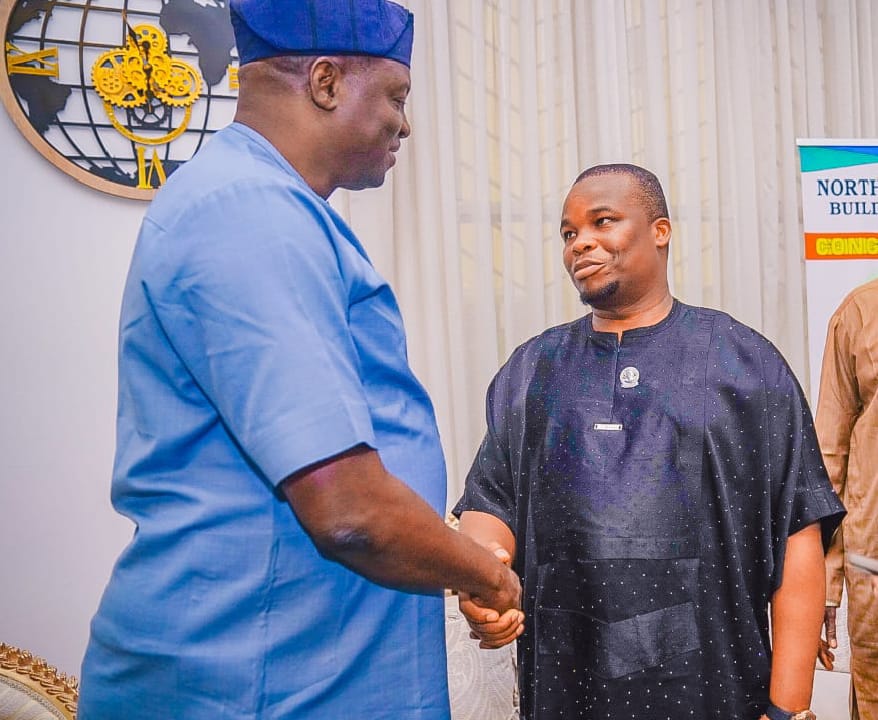
Chief Goodluck Nwaneri, a Director city boy movement, has paid a condolence visit to the APC National Chairman, Prof. Nentawe Yilwatda, at his residence in Abuja, following the passing of his beloved mother, late Mrs. Lydia Toma Yilwatda.
During the visit, Chief Nwaneri expressed his deep sympathy to Prof. Nentawe and the entire Yilwatda family, describing the death of a mother as a painful and irreplaceable loss. He noted that the late Mrs. Lydia Toma Yilwatda lived an exemplary life of faith, humility, and service, evident in the leadership qualities and values instilled in her children.
Chief Nwaneri prayed for the peaceful repose of her soul and asked God to grant the APC National Chairman and his family the strength and fortitude to bear the painful loss. He also encouraged them to find comfort in the enduring legacy their mother left behind.
He further reaffirmed his solidarity with Prof. Nentawe in this moment of grief, while urging the family to remain strong and united in honoring the life and memory of their departed matriarch.
-

 Entertainment3 weeks ago
Entertainment3 weeks agoBig Brother Naija Live Update: KOLA, SULTANA Evicted #BBNaija
-
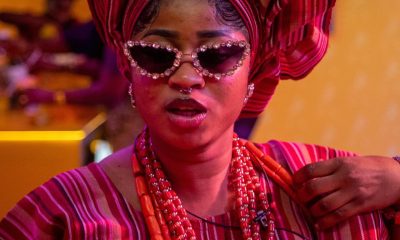
 Entertainment3 weeks ago
Entertainment3 weeks agoImisi Crowned Winner of Big Brother Naija Season 10
-

 Music News3 weeks ago
Music News3 weeks agoOdumodublvck Set to Drop ‘Industry Machine’ The Album Featuring Davido, Wizkid, Skepta & Stormzy
-

 News3 weeks ago
News3 weeks agoFirst Lady, Oluremi Tinubu Celebrates World Teachers’ Day 2025
-

 Entertainment2 weeks ago
Entertainment2 weeks agoBig Brother Naija Winners Ranked by Vote Share (2006 – 2025)
-
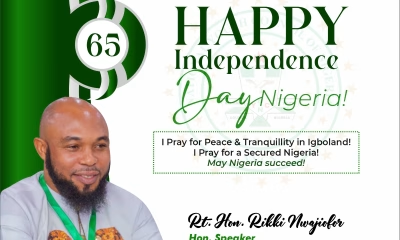
 News3 weeks ago
News3 weeks agoNdigbo Youth Parliament Speaker Calls for Equity, Unity, and Youth Empowerment on Independence Day
-

 News5 days ago
News5 days ago16 Nigerian Military Officers Arrested Over Alleged Coup Plot to Oust President Tinubu
-

 Entertainment3 weeks ago
Entertainment3 weeks agoBBNaija Season 10: Faith Wins Innoson Task, Gets First Car
-

 News4 days ago
News4 days agoNed Nwoko Gives Reason for Clash with Regina Daniels
-

 Music Video2 weeks ago
Music Video2 weeks agoRema Drops “Fun” Official Video Featuring Crayon, ThisizLondon & Valking

